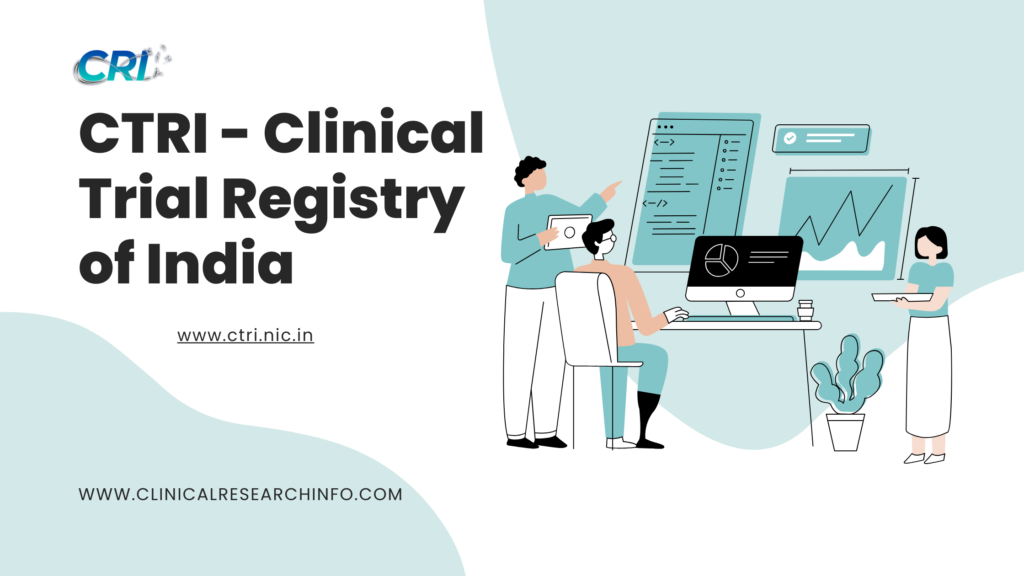The Importance of Registering Clinical Trials in the Clinical Trial Registry of India The Clinical Trial Registry of India (CTRI) is a free and online public record registry owned and hosted at the ICMR’s National Institute of Medical Statistics. It was launched on July 20th, 2007, and serves as a crucial platform for registering all clinical trials conducted in India. Initially, the registration with CTRI was voluntary. However, from June 15th, 2009, the Drugs Controller General (India) (DCGI) made it mandatory for all clinical trials conducted in India to be registered with CTRI. This move was further supported by 11 major journals in India, which declared that only registered trials would be considered for publication. The CTRI, available at www.ctri.nic.in, is an online, free, and searchable system that allows prospective registration of all clinical studies being conducted in India. It also serves as a registry for clinical studies conducted in countries that do not have their own primary registry. Any researcher, sponsor, investigator, or institute planning to conduct a clinical trial involving human participants in India is expected to register the trial in the CTRI before enrolling the first participant. This requirement extends to trials involving interventions such as drugs, surgical procedures, educational or behavioral treatments, preventive measures, lifestyle modifications, devices, rehabilitation strategies, as well as trials falling under the purview of the Department of AYUSH. By registering clinical trials in the CTRI, several benefits are realized: Transparency and Accountability Registration in the CTRI promotes transparency and accountability in clinical research. It allows researchers, regulatory bodies, and the public to access information about ongoing and completed trials, including study protocols, participant recruitment status, and outcomes. This transparency helps prevent duplication of trials, fosters collaboration, and ensures that research findings are disseminated. Ethical Considerations CTRI registration ensures that trials are conducted ethically and in compliance with regulatory guidelines. It helps prevent unethical practices such as selective publication of results, outcome switching, or non-disclosure of trials with unfavorable outcomes. By making trial information publicly available, it encourages responsible research conduct and protects the rights and welfare of study participants. Improved Research Quality CTRI registration enhances the overall quality of clinical research by facilitating better study design and reducing research waste. Researchers can access information about similar trials, ongoing studies, and relevant outcomes, enabling them to design studies that address existing knowledge gaps effectively. Additionally, by registering trial protocols, the risk of outcome reporting bias is minimized, leading to more accurate and reliable research findings. Facilitating Collaboration and Knowledge Exchange The CTRI serves as a platform for researchers and sponsors to identify potential collaborators, share ideas, and exchange knowledge. By providing a comprehensive database of registered trials, it enables researchers to explore existing research in their field and avoid unnecessary duplication. This collaborative environment fosters innovation, accelerates research progress, and ultimately benefits patients and healthcare systems. Promoting Public Trust Registration in the CTRI helps build public trust in clinical research. By making trial information accessible to the public, it allows individuals to make informed decisions about participating in trials. It also demonstrates the commitment of researchers and sponsors to transparency and accountability, which are vital for maintaining public confidence in the research process. To find out the Trials on CTRI website, follow the below steps; In conclusion, the Clinical Trial Registry of India (CTRI) plays a crucial role in promoting transparency, accountability, and ethical conduct in clinical research. By making trial information publicly available, it enhances research quality, facilitates collaboration, and builds public trust. It is imperative for all researchers, sponsors, investigators, and institutes conducting clinical trials in India to register their trials in the CTRI, ensuring the integrity and advancement of clinical research in the country.




